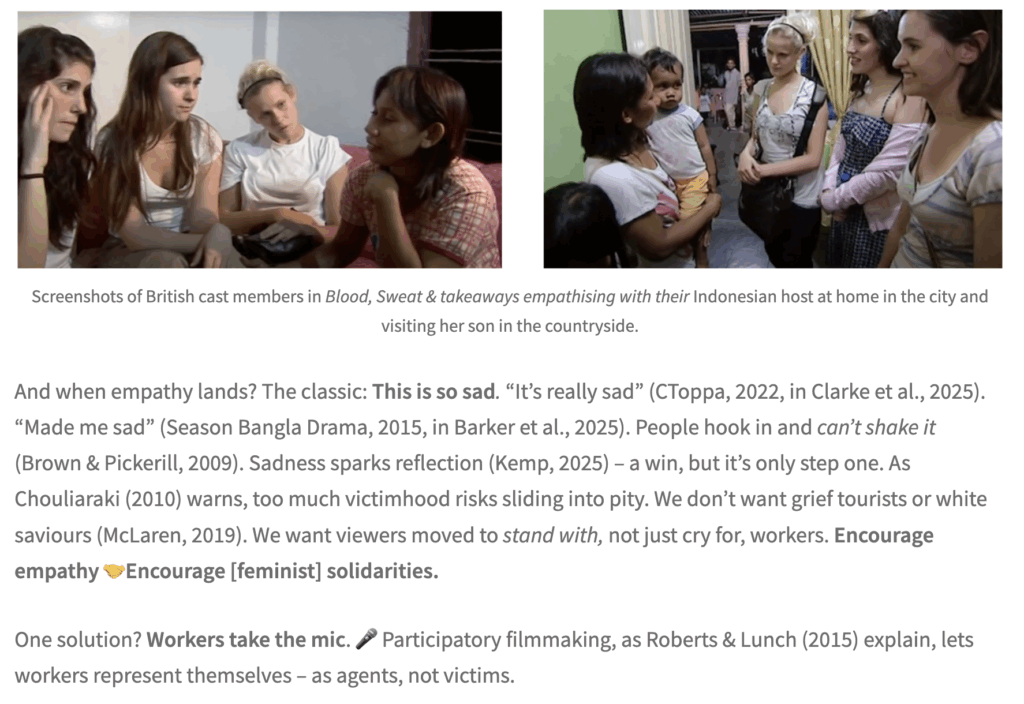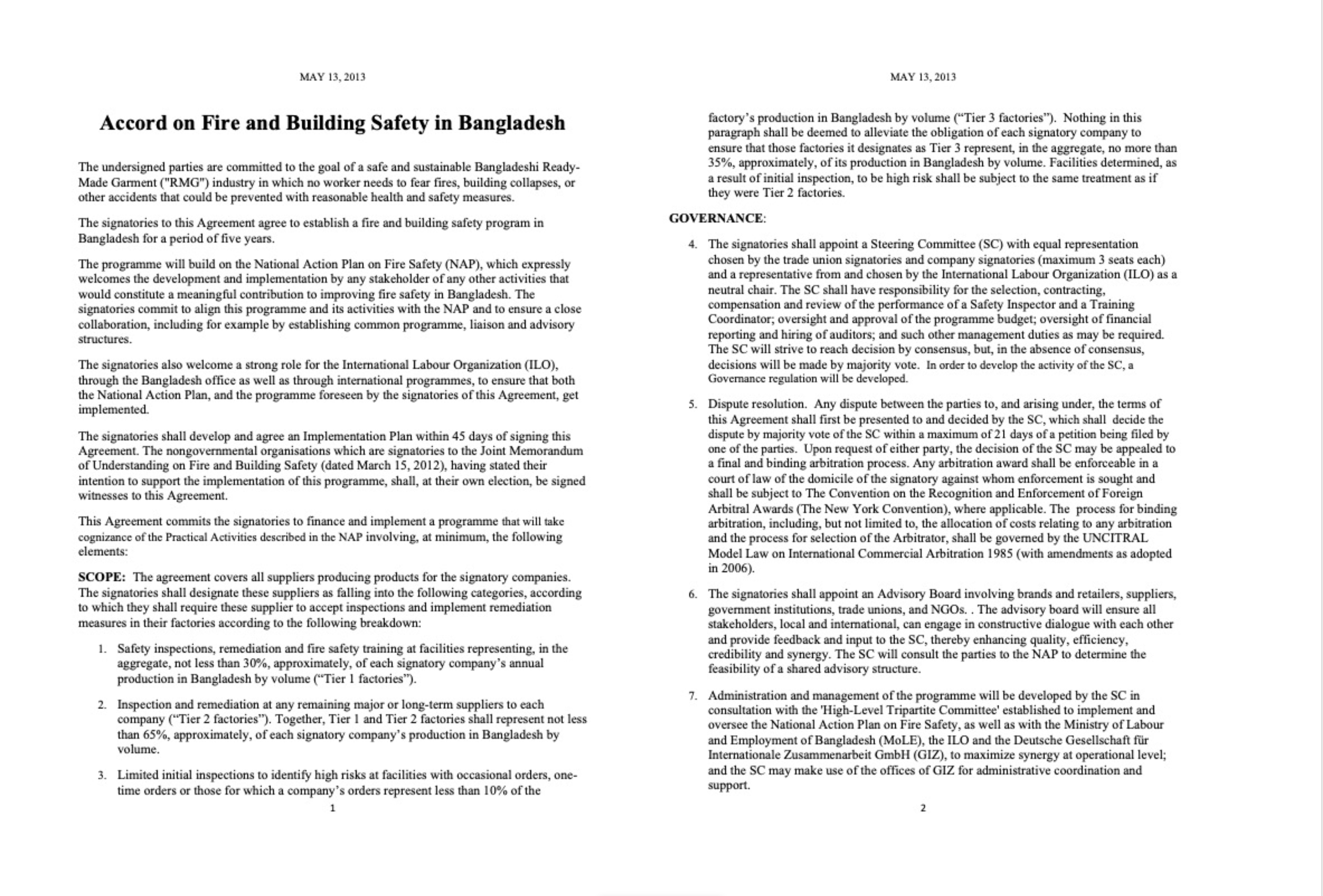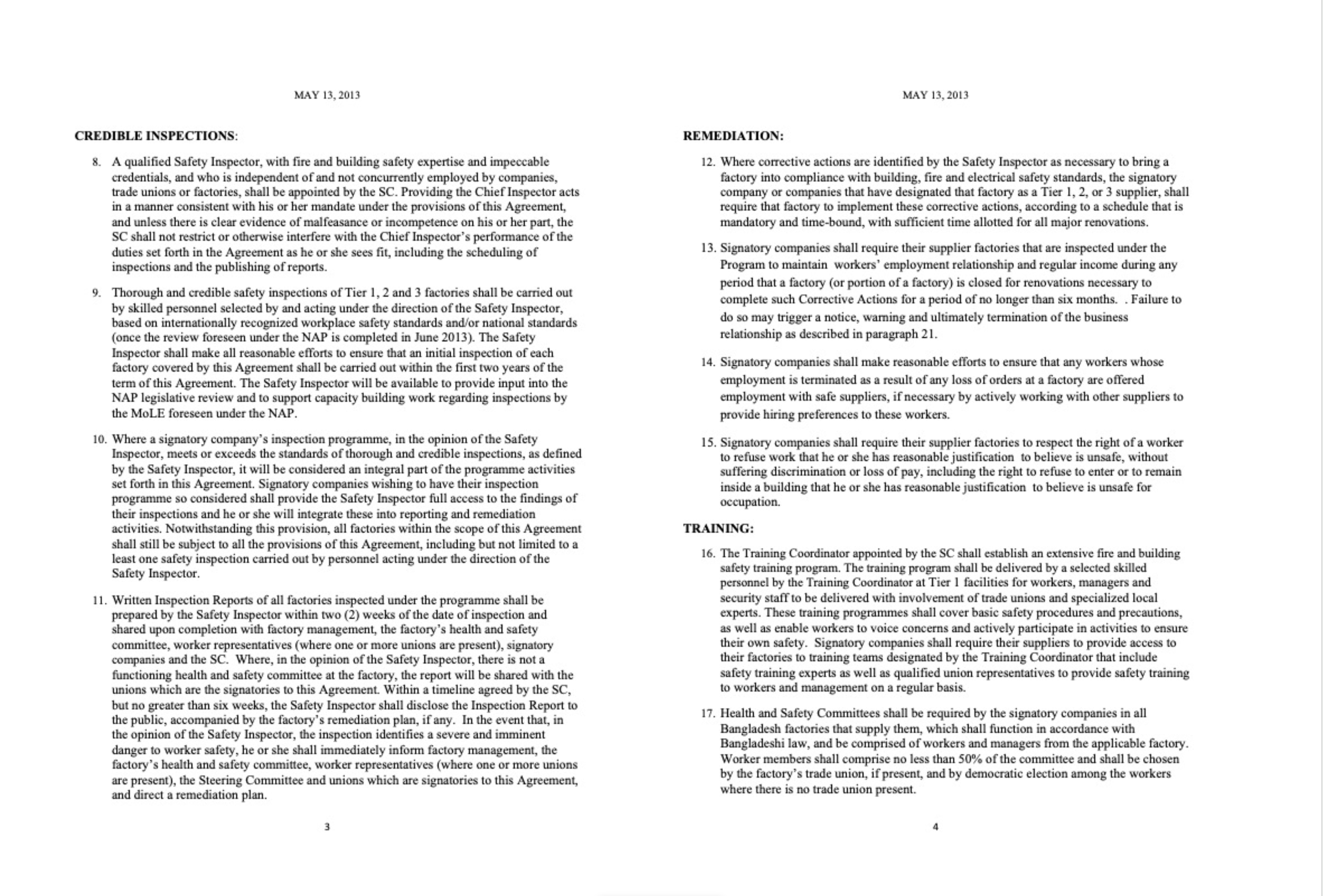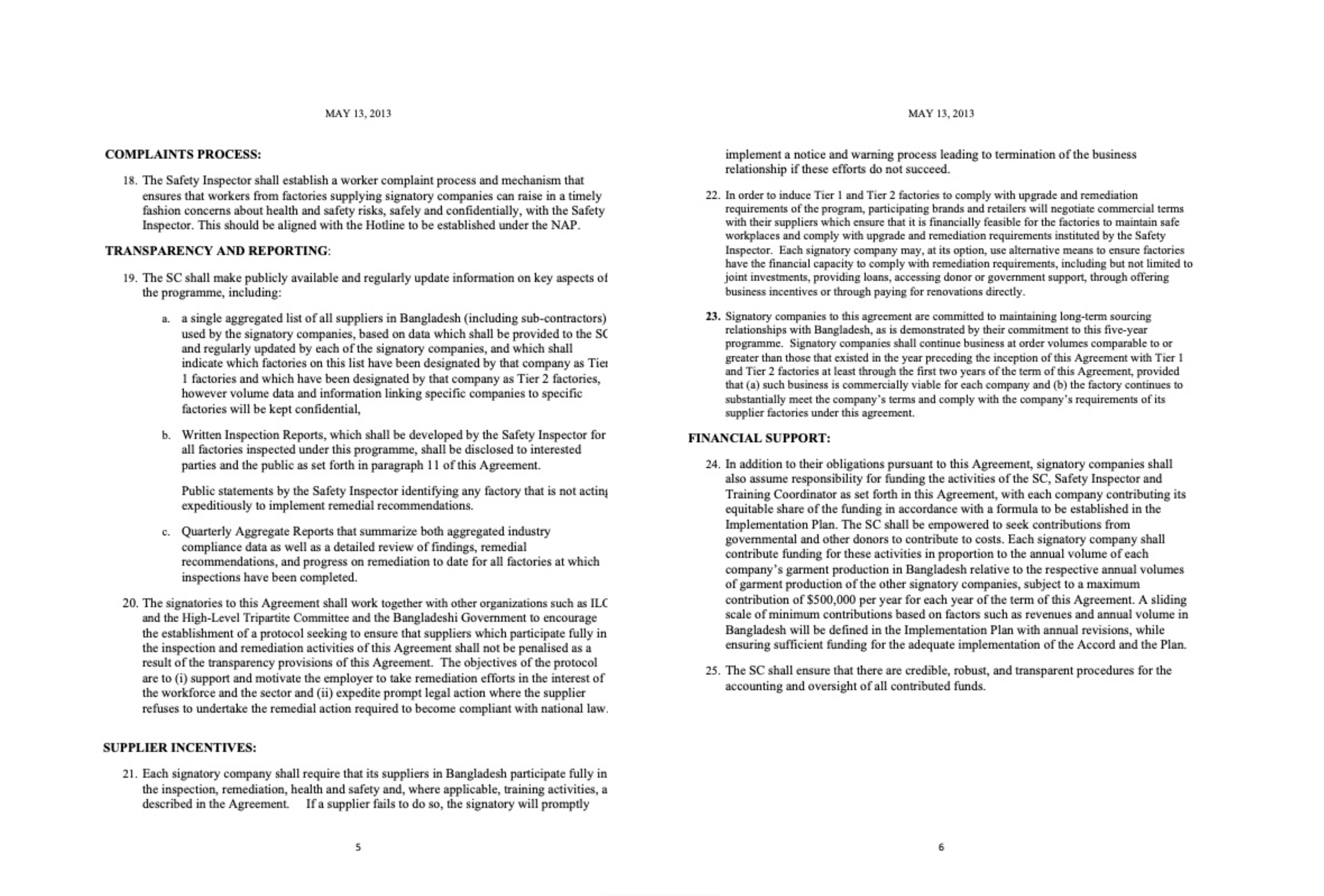

followthethings.com
Follow it yourself
“Dissertation ideas”
Two ways for undergraduate and masters students to do ‘follow the thing’ trade justice research usinb our site.
Screenshot from Sophie Burden’s coursework illustrating the second ‘intentions → impacts’ idea.
followthethings.com is an online store, a database of trade justice activism, and a research resource containing almost everything ever said about over 100 examples of trade justice activism: its intentions, tactics, discussion and impacts. This page outlines two ways in which this site can inform and inspire in-depth student research. Both are desk-based: a ‘follow it yourself’ dissertation that assembles a ‘follow the thing’ narrative from already published sources outside our site; and an ‘intentions -> impacts’ dissertation that focuses on one or more of our site’s compilation page examples (the ones with all the comments) to work out how trade justice activism works and what it can(not) do. This is an ideas page, one which you can share and discuss with your friends, tutors, supervisors and/or advisory board members. We provide below arguments from the academic literature that can justify and give focus to such ‘follow the thing’ trade justice activism research, some basic lines of enquiry, and some examples of student work on our site that can give a sense of what’s possible. Our background is in Anglo-American cultural geography, but the ‘follow the thing’ approach has been used across the arts, humanities, social sciences and beyond, and by students whose starting point could be anywhere in the world.
Page reference: Ian Cook et al (2025) Dissertation ideas. followthethings.com/dissertation-ideas.shtml (last accessed <add date here>)
Estimated reading time (includeing all FAQs): 43 minutes
Continue reading Dissertation ideas ![]()





